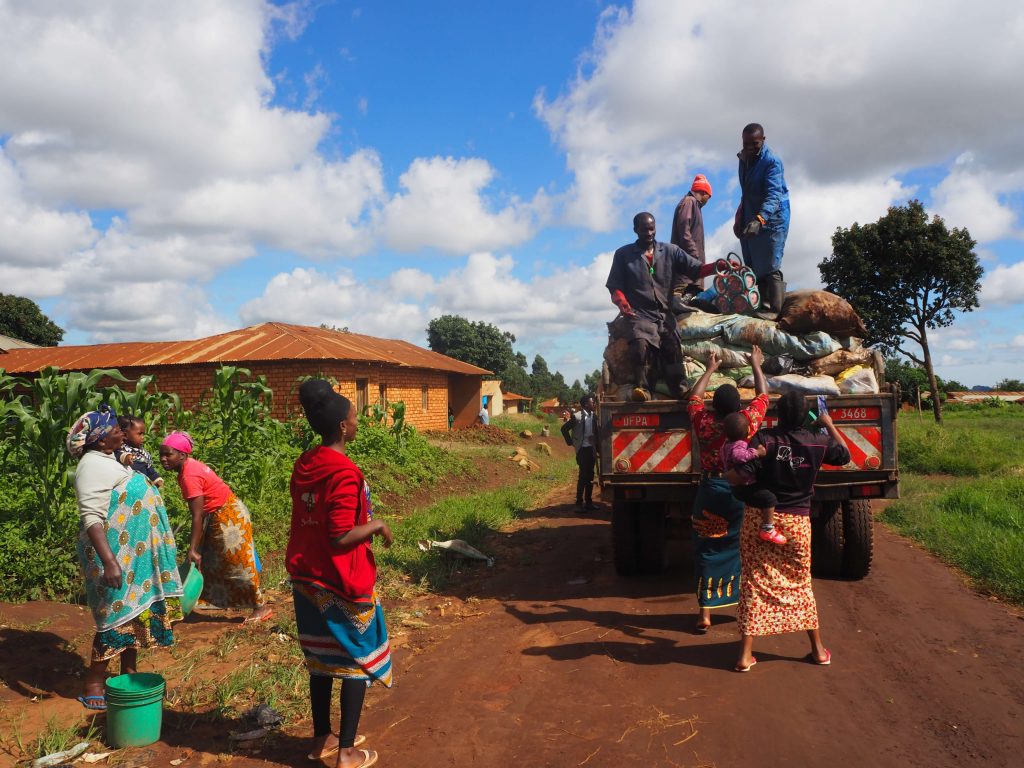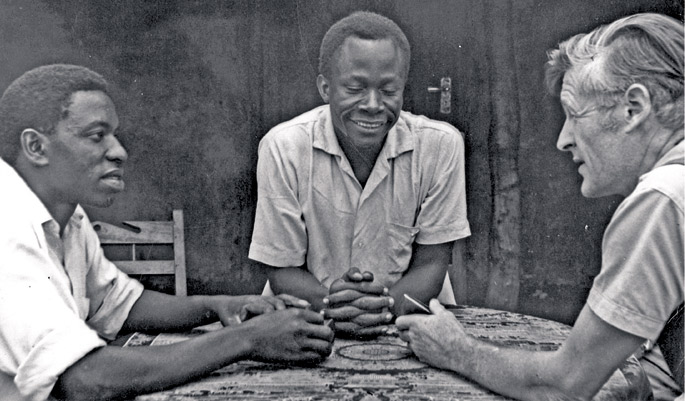The wave of plastics has reached Tanzania: how to reuse or recycle with very little money?
- Everybody is struggling with plastics, with those cheap materials that we don't know where to deposit after a brief use. In one of them they have made costly incinerators, in the other they have turned into tailings in whole areas – including oceans – which often condemn the entire population to dangerous jobs that they call recycling... If plastics are global, some of the reuse or recycling efforts are also global.

Leire Diez Larrea has written to ARGIA a crowdfunding campaign: “Njombe Beyond: small-scale plastic recycling in Tanzania. Shipo Smart Centre trains entrepreneurs from Njombe (Tanzania) to give a second life to plastic through simple and affordable technology. (…) Although less plastic is used in Njombe than in the Basque Country, there is little awareness of this: it is common for plastic bottles to be distilled into the environment or for the burning of plastic next to the house to breathe the smoke peacefully. In addition, the resources to avoid these examples are very limited or do not exist.”
The project that aims to make the Diez Larrea bilbaíno known aims to “reduce the plastic waste that ends up incinerated, in the landfill or in the environment. How? Training and helping Njombe entrepreneurs tackle small-scale plastic recycling using SMART technologies (Simple, Market-Based, Accessible and Repairable). Local entrepreneurs are already ready, we have the support of the Njombe City Hall and we know the machinery assembly producers. Once the financing for the assembly of the machines has been obtained, we will get to work.”
The Catalan platform Goteo has been in charge of organizing the campaign to raise 6,160 euros in cash. Explanations of the project can be read in English, Spanish, Italian and Basque: “Training entrepreneurs from Njombe (Tanzania) with simple plastic recycling machines to meet their needs.” When it came to writing these lines, they had already earned two-thirds of the money.
We believe in the power and capacity of communities to transform their own reality. We organized a meeting in...
Posted by Njombe Beyond on Friday, June 7, 2019
In the area covered by the project, in the capital of the Njombe region, its 40,000 inhabitants each day produce more than 35 tons of waste. Of these, 28 tonnes are collected by municipal services and stored in an uncontrolled landfill, which is often burned, incinerating waste to accommodate more people. Services burn a lot of uncollected garbage, which families spread out through the holes they've prepared around their homes or anywhere.
Being away from the consumerism of the rich north, plastics account for about 10% of the waste: 3,500 kg per day, 1,000 t/year. Until 2017, several companies were collecting plastic bottles to send them to China to recycle them. In 2018, however, the Government of Beijing decided to impede the mass import of plastics and the backward wave of the ban reached Tanzania.
Posted by Njombe Beyond on Tuesday, July 2, 2019
China’s decision has caused two major floods that have affected the world’s garbage trade. One, the one that relates to the lower part of the waste river, which has been mentioned a great deal: how the smugglers have started to bring waste to other countries in South-East Asia, to the Philippines, to Vietnam, to Malaysia… and also to Africa, in search of cheap landfills for them in recycling pretexts.
Obstruction, on the other hand, has also caused flooding as a source of garbage traffic, mainly in the richest countries – the USA, Canada, the European Union, Australia… – but also in many poor countries that have little infrastructure for waste, as the invasion of new plastics and materials is a global phenomenon today.
Cheap technology
Here's what happened to Tanzania: Since 2000, the import of plastics and gums in the African country has increased by 400% and the problem of their waste has intensified enormously. According to Njombe Beyond in the fundraising arguments, “the trend in Tanzania (including Njombe) and in sub-Saharan Africa in general is not encouraging: the rapid population growth, the increase in consumption and hence the generation of waste, and the lack of waste collection and management, indicate that the time to act is now, before the problem of plastic is greater.”
With the Njombe Beyond project (beyond Njombe) they want to organize small-scale workshops to recycle plastic. The model has been found in the Precious Plastic project. Dutch young engineer Dave Hakkens, who is now 30, started Precious Plastic in 2013, and with the aim of freely sharing knowledge, tools and techniques against plastic pollution create and re-integrate gratuitamente.De this way has multiplied the small and cheap artisanal structures that give a second life to plastic in different parts of the world.
The newcomer who wants to start recycling with materials, documentation, plans, etc. which offers Precious Plastic can know how to organize at low price, for example, inside an empty container, a small workshop, how to build tools for crushing, melting and manipulating plastics (crushers, injectors, extrusion, compressors...), how to transform products made with them into products that can be sold, etc. Hakkens wins the life of donations from those who subsidize each month via the Patreon platform.
The Njombe Beyond project today has three environmental engineers and a community development expert working in the Tanzania Non-Governmental Association SHIPO. SHIPO in its presentation notes that it has been providing water, sewerage, irrigation, agriculture and microfinance services to both local communities and private enterprises for twelve years. It develops microfinance programs through the Sacco’s Bank and its loans are mainly intended for the acquisition of water by citizens through low-cost technology.
If low cost technology is mentioned in the rich North by a minority that has opted for environment and sustainability, in the impoverished South these low-cost technologies are the most effective and often unique way to meet everyday needs. Easily buildable, durable and repairable structures and machines, accessible by hand, remote, expensive and without hard-to-reach parts... are separated by SMART Center, also extended by Malawi, Uganda, Kenya, Burkina Faso and Mozambique, assumed by SHIPO in Tanzania.
At Njombe they want to give a second chance to plastics that have become an essential part of everyday life and with them ensure a lifestyle for small businesses and new workers. They should be known for the irresponsible chemicals that continue to create new polluting polymers in the Basque Country.
Njombe Beyond in TVENjombe Beyond on the newsstand yesterday! Let the voice run! 📣 . And thanks to all those who have made it possible to reach the minimum to start the project! HEALTHY ASSANT! We continue to work towards the optimal and take the next steps to make the workshop a reality. 💪🏽🎉👩🏾🔧🔧♻👏🏿. 👉🏾More info here: https://www.goteo.org/project/njombe-beyond . . Yesterday Njombe Beyond was on TV news! Let's spread the word! 📣 . And thank you to all the people who have made it possible to reach the minimum amount of funding to start the project! HEALTHY ASSANT! We will keep on working to reach the optimum and we are taking the next steps to make the workshop a reality. 💪🏽🎉👩🏾🔧🔧♻👏🏿. 👉🏾More info: https://en.goteo.org/project/njombe-beyond
Posted by Njombe Beyond on Thursday, June 20, 2019
Pobreziari eta honek eragiten dien bazterkeriari aurre egiteko, Ghana iparraldean emakumeek beren banku-kooperatiba sortu dute. IPS gunean Albert Oppong-Ansah-k idatzi duenez, auzolan ekonomiko honi esker, bestela inolako ziurtasun ekonomikorik ez zuten familiek elkar... [+]














